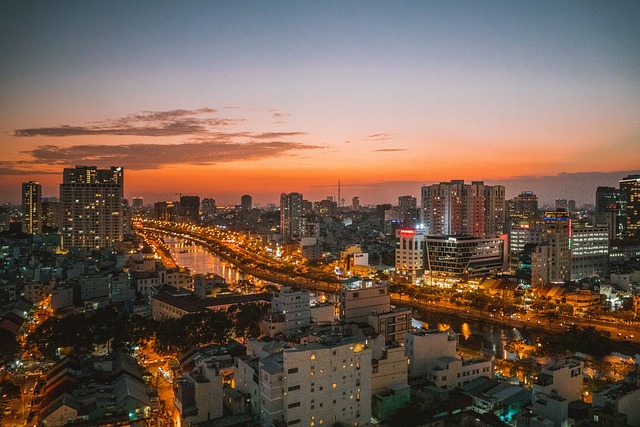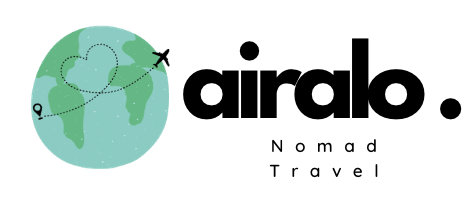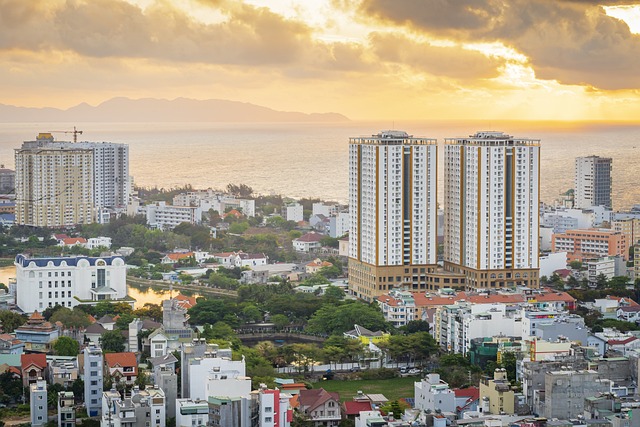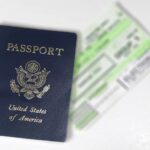
In recent years, Vietnam has become an ideal destination for an increasing number of digital nomads. This is not only due to its pleasant climate, rich culture, and low cost of living, but also because Vietnam offers some visa options that are perfect for remote workers. This article will introduce the Vietnam Digital Nomad Visa in detail, including applicable groups, visa types, application procedures and precautions.
Vietnam Digital Nomad Visa Selection and Detailed Analysis
Although Vietnam has not yet introduced a visa type specifically for digital nomads, digital nomads can still legally reside and work remotely in Vietnam through other common visa options. Here’s a closer look at the two main visa options available for digital nomads:
1. Tourist Visa
- Applicable people:
Mainly suitable for short-term tourists, especially freelancers, remote workers and those planning short-term digital nomad activities in Vietnam. - Visa category and validity period:
- single entry visa: Valid for 30 or 60 days, suitable for short-term visits.
- multiple entry visa: Usually valid for 6 months or 12 months, with a maximum stay of 90 days after each entry.
- Work rules and restrictions:
- The tourist visa itself does not allow for work directly related to local enterprises, such as employment, labor contracts in Vietnam, etc.
- However, as a remote worker or freelancer, it is theoretically possible to legally engage in online work in Vietnam (such as providing services to foreign clients). Vietnamese law does not explicitly prohibit online remote work, but if your job involves local enterprises or labor markets in Vietnam, you may face visa issues.
- Things to note: Although Vietnam has looser regulations on remote work, make sure the work you do does not involve activities that require a labor permit or work visa. If local partners or companies in Vietnam are involved, it is recommended to consult professional legal advisors to ensure compliance with local regulations.
- Renewal and extension:
Tourist visas are generally renewable, and specific renewal policies and procedures vary depending on the visa type and the applicant’s nationality. Before their visa expires, digital nomads can apply to extend their stay.- Renewal method: Renew your visa in Vietnam or apply for it through the Vietnam Entry-Exit Administration Bureau, or assist in renewing your visa through travel agencies, visa agencies and other channels.
- Advantages and limitations:
- Advantages: The application process is relatively simple and low-cost, making it ideal for digital nomads who plan to work short-term or flexibly.
- limitation: Unable to carry out formal local work activities and the period of stay is limited. If you require long-term residency or want to work remotely more consistently, you may want to consider other visa types.
2. Business Visa
- Applicable people:
If you plan to cooperate, sign contracts with companies in Vietnam, or plan to open your own company in Vietnam, a business visa is a more suitable choice. - Visa category and validity period:
- Short term business visa: Usually valid for 3 months to 6 months, suitable for people with short-term business activities.
- Long term business visa: The validity period can reach 1 year and is suitable for digital nomads with long-term business needs, especially professionals who plan to establish personal companies or develop long-term cooperation in Vietnam.
- Work permission:
- The business visa allows the holder to perform work related to business activities, such as cooperating with local Vietnamese companies or institutions, signing business contracts, participating in business meetings, etc.
- A business visa is also available for digital nomads who want to freelance by setting up a company, provided that these activities comply with business regulations within Vietnam.
- The business visa is not only suitable for individual entrepreneurs, but also for those who intend to represent foreign companies or cooperate with Vietnamese companies.
- Application requirements:
- Business invitation letter or proof of cooperation: An invitation letter or cooperation agreement from a Vietnamese company or institution is required as proof of application materials.
- Company registration documents: If you plan to open a company in Vietnam, you must submit relevant company registration information, business license, tax registration certificate and other documents.
- Other requirements: Some applications may require proof of funds or a business plan, especially if you plan to open a company.
- visa extension:
- Business visas usually support extensions, especially long-term visas. You can apply for extension before the end of the validity period, and the procedure is relatively simple. The extension process is usually handled by Vietnam’s immigration authorities, or applied through a registered visa agency.
- Advantages and limitations:
- Advantages: Business visa is suitable for those who want to carry out long-term remote work in Vietnam and have business dealings with local companies in Vietnam. The visa is valid for a longer period and provides more stable residence rights.
- limitation: The application process is relatively complicated and requires the provision of business-related certification materials, and sometimes requires the help of local legal advisors in Vietnam.
3. Looking ahead: A visa specifically designed for digital nomads
- current situation: The Vietnamese government has yet to introduce a visa type specifically designed for digital nomads. However, as the global remote working trend grows, the Vietnamese government has begun discussing and considering launching a digital nomad visa to attract more international remote workers and entrepreneurs.
- potential changes:
- Depending on the external market and global mobile office trends, Vietnam may introduce a dedicated digital nomad visa in the next few years. This visa will likely be more flexible, allowing remote workers to live and work in Vietnam for an extended period of time without restrictions.
- The visa may also offer some unique benefits, such as tax exemptions, simplified application processes, etc., to encourage digital nomads to choose Vietnam as a place to work and live.
- Existing policy changes: If the Vietnamese government decides to launch a new visa option, it is expected to be piloted first in major cities such as Ho Chi Minh City, Hanoi and other places, and gradually promoted nationwide.
Detailed analysis of visa applicable groups
Vietnam’s visa policy mainly targets different types of foreigners, including applicants for tourism, business, work and other needs. For digital nomads, choosing the right visa type is key to ensuring legal residency and successfully working remotely. The following are the main groups of people suitable for applying for Vietnam visa and their specific application conditions:
1. Remote workers
- Applicable people:
Remote workers usually refer to freelancers who provide services to overseas clients, or employees who work for companies in other countries, without the need to perform face-to-face work or establish formal labor relations in Vietnam. - Visa options:
- tourist visa: Suitable for short-term remote workers. Tourist visas are usually valid for 30 to 90 days, and the application process is simple and does not require complex business materials. This is perfect for freelancers who want to work flexibly and enjoy life in Vietnam.
- business visa: Suitable for remote workers with long-term cooperation needs, especially those who have regular business interactions with Vietnamese companies or institutions. The business visa is usually valid for 6 months to 1 year and is suitable for remote workers who stay for a long time and have fixed business activities.
- work restrictions:
- Although remote workers holding tourist visas can legally engage in online work, they cannot sign labor contracts directly with local enterprises in Vietnam, nor can they receive local salaries in Vietnam.
- The business visa can provide more flexibility, allowing the establishment of partnerships or contracts with Vietnamese companies, and is suitable for remote workers who need to conduct ongoing business.
- Things to note:
- Although Vietnam has relatively loose regulations on remote work, if remote workers plan to stay for a long time and obtain Vietnam’s social security or tax treatment, they may need to choose a visa that meets the requirements and file taxes in accordance with Vietnam’s tax laws.
2. Entrepreneur
- Applicable people:
Suitable for entrepreneurs who plan to open a company, invest, or start an independent business in Vietnam. Whether you plan to set up a small business or want to participate in investment projects in Vietnam, entrepreneurs need to choose the appropriate visa type. - Visa options:
- business visa: This is the most common visa type used by entrepreneurs. If you plan to open a company or engage in business cooperation in Vietnam, a business visa provides you with the necessary legal residence status.
- investment visa(If applicable): In some cases, Vietnam will provide investors with specific visa types, allowing them to make long-term investments and conduct business in Vietnam.
- Work permission:
- The business visa allows the holder to engage in work directly related to business activities, such as signing contracts with local Vietnamese enterprises, cooperating with other enterprises, opening and operating companies, etc. For entrepreneurs, this visa can provide them with the legality needed to carry out actual business activities.
- Application requirements:
- When applying for a business visa, entrepreneurs need to provide company registration documents, cooperation agreements, investment plans and other business documents to prove their business activities in Vietnam.
- If you plan to start a company, you also need to follow Vietnam’s company registration and tax registration procedures.
- Advantages and limitations:
- Advantages: Business visa allows entrepreneurs to live and engage in business activities in Vietnam for a long time, and is suitable for most foreign investors who intend to start long-term business in Vietnam.
- limitation: The application process is complicated and requires the submission of a detailed business plan and relevant legal documents. If it is not handled through legal channels, you may encounter legal or tax risks.
3. Short-term digital nomads
- Applicable people:
Short-term digital nomads refer to those who plan to stay in Vietnam for no more than 90 days and mainly make ends meet by working remotely. - Visa options:
- tourist visa: For short-term digital nomads, a tourist visa is the most suitable option. Tourist visas can be for single or multiple entries, and the duration of stay is generally 30 to 90 days.
- The tourist visa is especially suitable for those who only plan to live in Vietnam for a short period of time and work remotely.
- work restrictions:
- Although tourist visa holders can engage in remote work, they cannot sign formal labor contracts with local Vietnamese companies or conduct any form of local employment activities in Vietnam.
- Advantages and limitations:
- Advantages: The application process is simple and suitable for digital nomads who want to work and travel in Vietnam in a flexible way.
- limitation: For digital nomads who plan to work and live in Vietnam for a long time, the tourist visa has a shorter validity period and may need to be renewed or reapplied frequently.
Detailed description of visa application process
1. Tourist visa application
The tourist visa is suitable for digital nomads who plan to stay in Vietnam for a short period of time, especially those who work remotely. The following is the detailed application process:
- Application method:
- Apply through Vietnamese embassies and consulates abroad:
Applicants can apply for a tourist visa at the Vietnamese embassy or consulate in their country. When applying, you need to submit the required materials and conduct an interview (if required by the embassy or consulate). - Apply via electronic visa (eVisa):
For citizens from specific countries, Vietnam provides electronic visa services, and applicants can submit applications through the official website of the Vietnam Immigration Bureau. eVisa is available to citizens of 50 countries and provides a convenient option for short-term digital nomads.- Validity period of electronic visa:
Usually 30 days, suitable for tourists and digital nomads planning a short stay in Vietnam. The electronic visa application process is simpler and can be completed online, and results are usually received within 3 working days.
- Validity period of electronic visa:
- Apply through Vietnamese embassies and consulates abroad:
- Materials required:
- Passport scan:
Applicants need to submit a scanned copy of their passport to ensure it is valid for at least 6 months. - passport photo:
Submit a recent passport photo, usually with a white background and clearly legible. - Online form filling:
When applying via e-Visa, applicants need to fill out the e-Visa application form and upload the necessary scanned documents.
- Passport scan:
- Application time and fees:
- Application time:
When applying via e-visa, the approval process usually takes 3 to 5 working days. If you apply through an embassy or consulate abroad, the approval time may be longer, usually 5 to 10 working days, depending on the location of application. - cost:
The fee for an e-visa application is approximately US$25, although the specific fee may vary depending on the applicant’s nationality. Embassy and consulate visa fees may also be slightly higher.
- Application time:
2. Business visa application
For digital nomads or entrepreneurs who plan to start a long-term business in Vietnam or collaborate with local companies, a business visa is a more suitable option. The following is the detailed process for business visa application:
- Application method:
- Apply through Vietnamese embassies and consulates abroad:
Business visas usually need to be applied through Vietnamese embassies and consulates abroad. Applicants need to provide relevant business documents and be interviewed as required. - Vietnam local company assistance:
In many cases, local Vietnamese companies will help applicants apply for business visas and provide invitation letters and related supporting materials.
- Apply through Vietnamese embassies and consulates abroad:
- Materials required:
- invitation letter:
A formal invitation letter from a Vietnamese company or institution stating the applicant’s purpose of coming to Vietnam, length of stay and specific cooperation projects. - Company registration documents:
If the applicant intends to open a company or conduct business activities in Vietnam, he also needs to provide a company registration certificate or other relevant business documents. - Valid passport and photo:
Submit a copy of your passport, ensuring it is valid for at least 6 months. At the same time, you need to provide a recent passport photo to meet the requirements of visa application. - Proof of funds:
Applicants need to provide bank deposit certificates or income certificates to prove that they have sufficient funds to support their stay and living expenses in Vietnam. - Other materials:
Depending on the application situation, the applicant may need to provide more supplementary materials, such as tax certificates, health examination reports, etc.
- invitation letter:
- Application time and fees:
- Application time:
Business visa applications take longer to process, usually 3 to 4 weeks. Therefore, it is recommended that applicants prepare and submit materials in advance to avoid delays in application that may affect their plans. - cost:
The application fee for a business visa varies depending on the location of application and the type of visa (single, double, multiple entry), and usually ranges from US$50 to US$150.
- Application time:
- Visa validity:
- The validity period of a business visa is usually 6 months to 1 year, depending on the applicant’s specific situation and cooperation plan.
- Applicants can choose a single-entry or multiple-entry visa, depending on their business needs and frequency of business dealings with Vietnam.
3. Precautions
- Visa type selection:
When digital nomads choose a visa, they need to make a decision based on their work pattern, length of stay, and whether they have business cooperation with local Vietnamese companies. Tourist visas are suitable for short-term stays, while business visas are more suitable for individuals with long-term business plans or collaborations. - Renewal and extension:
For digital nomads who want to stay in Vietnam for a long time, they can apply for an extension before their visa expires (especially tourist visa), but they need to pay attention to the extension policies of different visas. For business visas, you can apply for a new visa or apply for renewal. The specific policy depends on the applicant’s business activities. - visa compliance:
When applying for a visa, be sure that the materials and information provided are true and accurate. Any false information or omissions may result in visa rejection or even affect future visa applications.
Visa fee details
Vietnam visa fees vary depending on the visa type, application route and the applicant’s nationality. The following is a detailed fee description for tourist visa and business visa:
1. Tourist visa fees
- Electronic Visa (eVisa) Fees:
- Standard fee:
For citizens of eligible countries, the fee for applying for an e-visa in Vietnam is usually$25. The e-visa has a relatively fixed fee and is suitable for digital nomads and tourists who plan to stay in Vietnam for no more than 30 days. - Applicable people:
Electronic visas are available for citizens from 50 countries. The specific list of countries can be checked on the official website of the Vietnam Immigration Bureau. The electronic visa fee is lower and the application process is convenient. There is no need to go to the embassy or consulate. You only need to submit the application and pay the fee online.
- Standard fee:
- Traditional tourist visa fees(Apply through the embassy or consulate):
- single entry visa:
If you apply for a traditional tourist visa through a Vietnamese embassy or consulate abroad, the fees may vary slightly, usually inBetween $25 and $50. The cost difference mainly depends on the embassy and consulate policy of the country where you are applying and the validity period and type of visa. - multiple entry visa:
If you apply for a multiple-entry tourist visa, the fee is usually higher and may reach$50 or more, depending on the length of visa validity and the need for multiple entries.
- single entry visa:
- Other expenses:
- Visa extension fee:
If you wish to extend your stay on a tourist visa, the extension fee is usually$20 to $40The exact amount depends on the number of days of extension required and the type of visa.
- Visa extension fee:
2. Business visa fees
- Common business visa fees:
- Single Entry Business Visa:
The cost of business visa is generally higher, usually inBetween $50 and $100. The difference in fees is mainly determined by the validity period of the visa, the number of entries and whether additional materials are required (such as company registration documents, invitation letters, etc.). - Multiple entry business visa:
For business people who need to enter and exit Vietnam frequently, the cost of a multiple-entry visa is higher, usuallyUSD 100 or more, the specific fee depends on the validity period of the visa and the complexity of the application.
- Single Entry Business Visa:
- Visa type affects fees:
- Short term business visa(valid within 6 months): The fee is lower, usually withinBetween $50 and $70。
- Long term business visa(valid for more than 6 months): the cost is higher, usually inBetween $80 and $150, depending on the specific validity period of the visa and whether a multiple-entry permit is required.
- Expedited service fee:
- If the applicant wishes to expedite processing of the visa, the fee will usually be higher than the regular application fee$20 to $50. Expedited service can shorten the visa processing time to 1 to 3 working days, suitable for those applicants who are pressed for time.
- Other expenses:
- Visa extension and renewal fees:
For applicants who already hold a business visa and wish to extend or renew their visa, the fee is usuallyBetween $50 and $80, the specific amount depends on the visa type and the length of the extension.
- Visa extension and renewal fees:
3. Fee payment method
- Electronic visa application:
When applicants apply for an electronic visa through the official website of the Vietnam Immigration Bureau, the fee is usually paid online via credit card or debit card. When making payment, the system will automatically display the application fee and payment method. - Visa application at embassy or consulate:
When applying for a visa through a Vietnamese embassy or consulate abroad, the fee usually needs to be paid by bank transfer, credit card payment or cash (depending on the requirements of different embassies and consulates). Applicants need to confirm the payment method and specific amount when submitting their visa application.
4. Fee adjustments and policy changes
Vietnam visa fees may be adjusted based on changes in government policies. Applicants are advised to regularly check the official website of the Vietnam Immigration Service or contact the nearest Vietnamese embassy or consulate to learn about the latest visa fees and policies.
Detailed instructions for visa extension and renewal
Vietnam’s visa extension and renewal policies can help foreigners stay in Vietnam legally for longer, but specific requirements and procedures will vary depending on the visa type and the applicant’s specific circumstances. The following are detailed instructions for Vietnam visa extension and renewal:
1. Extension of tourist visa
- Number of extensions and deadlines:
Tourist visas can usually be extendedonce, the time of each extension is generally30 days. However, the specific feasibility and number of extensions may be subject to review and approval by the Vietnam Immigration Bureau, so whether an extension can be obtained needs to be decided on a case-by-case basis.
It is important to note that tourist visa extensions are generally not allowed for more than 90 days. For those digital nomads who plan to stay for a long time, relying solely on a tourist visa may not be enough, so other options need to be considered before the visa expires, such as converting to a business visa. - Extend application conditions:
In order to successfully extend a tourist visa, applicants need to meet certain conditions, including but not limited to:- Proof of legal residence: Applicants need to provide proof of legal residence during their stay in Vietnam, such as residential address or rental contract.
- Bank deposit certificate: In some cases, applicants may be required to provideBank deposit certificate, prove that you have enough funds to support your life in Vietnam.
- Other proof of income: If the applicant has a fixed income, he may need to provide proof of income (such as a contract or tax bill) to prove that he can be self-sufficient in Vietnam.
- Extend application time:
Application for extension of tourist visa usually needs to be made at least in advance7 to 10 working dayssubmit. Applying in advance can help avoid problems with staying after your visa expires.
2. Renewal of business visa
- Renewal validity period:
Business visas can usually be renewed for longer periods of time, and renewals are usually valid for6 months to 1 year, depending on the type of visa and individual circumstances. For example, short-term business visa renewal may be easier, while long-term business visa renewal may require more financial and business documentation.
Specific requirements for renewal include:- Vietnam company invitation letter: If the applicant is cooperating or working with a local company in Vietnam, you may need to provideinvitation letter, proving that their work and business activities in Vietnam are legal.
- Company registration documents: If the applicant is self-employed or owns a company registered in Vietnam, he or she also needs to provide the company’s registration information, tax documents and other materials.
- Renewal application conditions:
Compared with tourist visas, business visa renewals usually require more supporting materials. The following are common materials required for renewals:- Valid passport: Passport must be valid for at least 6 months.
- Bank deposit certificate or income certificate: Applicants are required to provide documents proving that they have sufficient funds to support their residence and living expenses in Vietnam.
- Corporate financial documents: If you open a company in Vietnam, you may need to provide company financial statements, tax certificates and other documents to prove that the company is operating normally.
- Proof of residence: Applicants also need to provide proof of legal residence in Vietnam, such as a rental contract or residence registration form.
- Renewal application time:
Renewal of a business visa usually requires1 to 2 weeksprocessing time, so applicants should prepare all relevant materials in advance and submit renewal applications early.
3. Precautions
- cost:
Renewal usually incurs additional fees, the amount of which depends on the type of visa, the length of the renewal and the nationality of the applicant. Business visa renewal fees are higher, usually inBetween $50 and $150, depending on the renewal period and specific requirements. - Limitations on extensions and renewals:
The Vietnam Immigration Bureau has certain regulations and review procedures for visa extension and renewal. Applicants should ensure that their stay in Vietnam does not violate immigration laws, otherwise they may face fines or be required to leave the country. Therefore, it is recommended to prepare renewal or extension materials at least one month before the visa expires. - visa conversion:
If the applicant wishes to switch from a tourist visa to a business visa, or from another type of visa to a long-term residence visa, relevant supporting documents are usually required and the application process may be more complicated. It is recommended to consult with Vietnam’s immigration department or a professional visa agent in advance.
Detailed description of matters needing attention
When living and working in Vietnam, digital nomads need to pay attention to the following key aspects to ensure legal and compliant residence and remote work.
1. Tax issues
- Foreign income and tax obligations:
For most digital nomads, their primary source of income usually comes fromOutside Vietnam. According to Vietnam’s tax laws, if you do not engage in local business activities or have no local sources of income in Vietnam, you generally do not need to pay Vietnamese taxes.personal income tax。
However, if your income comes from customers in Vietnam, or if you open a local company or carry out business activities in Vietnam, then you may need to pay income tax on this income. Vietnam’s tax policies for local income and multinational company operations are relatively complex. If digital nomads are involved in local financial activities in Vietnam, it is recommended to consult a tax expert or accountant to ensure compliance with tax filing. - tax residence:
If you have lived in Vietnam for more than183 days, you may be treated astax resident, even if your source of income comes primarily from abroad. In this case, Vietnam may require you to pay tax on your worldwide income. Therefore, long-term digital nomads need to pay special attention to their tax status to avoid unnecessary tax liability.
2. Registration of residential address
- Residential address reporting requirements:
According to Vietnamese law, all foreigners mustWithin 24 hoursNeed tolocal police agencyReport your residential address. This is a mandatory legal requirement in Vietnam. Failure to report in accordance with the regulations may result in fines or other legal consequences.
If you rent an apartment or house in Vietnam, your landlord will usually assist you with this reporting process. If you choose short-term accommodation, make sure you understand your responsibilities for registering your address during your stay to avoid legal risks due to negligence.
In addition, the address where foreigners live in Vietnam will become the basis for daily interactions with the government, so it is very important to ensure that the registered address is accurate and updated in a timely manner, especially when moving.
3. Legal Compliance
- Remote work legality:
There are currently no laws specifically targeting remote workers in Vietnam, however, as a digital nomad, remote working is usually achieved via a tourist visa or business visa. It is not illegal to work remotely in Vietnam, but it is important to note thatCannot directly engage in local work or business activities, such as signing a labor contract with a local company in Vietnam, or carrying out business activities in Vietnam that are not carried out remotely.
If you plan to establish a physical company or conduct on-site business in Vietnam, you may need to apply for a suitable work visa or business visa, and you will need to comply with Vietnam’s relevant labor laws and tax regulations. - Remote Services Compliance:
Digital nomads should avoid providing direct face-to-face business services within Vietnam. If you mainly provide remote services (such as online consulting, programming, design, etc.), you usually do not need to apply for a work permit. But if your business involves local customers in Vietnam and requires physical interaction or space, you will need to follow relevant business licenses and labor regulations.
4. Health Insurance
- Healthcare System Overview:
Vietnam’s medical system is relatively developed, especially in big cities such asHo Chi Minh CityandHanoi, there are many modern hospitals and clinics. However, as foreign residents, digital nomads generally do not enjoy the medical benefits of Vietnamese citizens. Therefore, ensuring you have appropriate health insurance coverage is crucial.- international health insurance: Many digital nomads choose to buyinternational health insurance, this type of insurance can provide global medical services, especially suitable for remote workers who often move between different countries. By purchasing international health insurance, digital nomads can ensure that they will receive timely medical attention if they encounter unexpected health problems in Vietnam.
- Vietnam local health insurance: In addition, some expats will also choose to purchase local health insurance products in Vietnam, which are usually relatively cheaper, especially if they plan to live in Vietnam for a long time. It is worth noting that the coverage of local health insurance may be limited, and the specific insurance terms need to be understood carefully.
- Health insurance and visa requirements:
Although Vietnam does not require foreign residents to purchase health insurance, some visa types (especially business visas) may require proof of health insurance as part of the application materials. Especially for digital nomads who plan to live long-term, ensuring they have adequate health insurance coverage is not only a legal compliance requirement, but also an important step to ensure their own safety.
Advantages of being a digital nomad in Vietnam
Vietnam offers several attractive advantages as a destination for digital nomads, especially for remote workers looking to balance work and quality of life. Here are the main advantages of Vietnam as a destination for digital nomads:
1. Low cost of living
- Accommodation fee:
Vietnam has one of the lowest living costs in Southeast Asia, especially in big cities such asHo Chi Minh CityandHanoi, as well as other smaller cities and tourist resorts, accommodation is relatively cheap. Digital nomads can choose fromcheap apartmentThere are a variety of accommodation options, including high-end hotels, and monthly rents are often lower than in major cities in many other Asian countries. Even in popular areas of Vietnam, it’s still relatively easy to find cost-effective accommodation suitable for remote workers on a tight budget.
For example, the monthly rent for a studio apartment with complete infrastructure in Ho Chi Minh City is approximately$250 to $400between, while the cost in Hanoi may be lower, usually between$150 to $300between. For long-term digital nomads, this means significant savings on accommodation expenses, allowing the funds to be invested in other life needs. - Food and beverage expenses:
Food and beverage costs in Vietnam are also relatively low. Street food and local restaurants offer delicious and affordable meals, and a simple Vietnamese rice noodle (Pho) or rice set meal is often served at$1 to $3between. Even if you choose to dine at a high-end restaurant, the cost usually does not exceed$10 to $20, allowing even digital nomads on a tighter budget to enjoy delicious local cuisine. - transportation costs:
Vietnam’s public transportation system, including buses, motorcycle rentals and taxis, is also very affordable. In big cities, take a rideMotorcycle rentalIt is the most common and economical way to travel, and the price is usually between$1 to $3depending on distance and traffic conditions. Many digital nomads also choose to use shared bike and scooter services such asGrab, convenient, fast and affordable.
2. Beautiful environment
- natural landscape:
Vietnam is known for itsdiverse natural landscapesAnd famously, from tranquil beaches to majestic mountains, digital nomads can not only enjoy a productive work environment, but also relax after work.
Vietnamesebeach(likeDa Nang、Nha Trang) provides digital nomads with an ideal haven from the hustle and bustle of the city.Da NangofMy Khe BeachandNha TrangofNha Trang Beach, attracting countless tourists and remote workers with its crystal clear waters and tranquil atmosphere. And in the northSabahandhalong bay, is a paradise for lovers of hiking, trekking and outdoor activities. - Tropical rainforests and mountains:
If you like natural adventure and outdoor activities, Vietnamtropical rainforestandmountains(likePhu Quoc Islandof rainforests andSabahThe mountains) provide you with an ideal environment. In these places, you can experience Vietnam’s traditional national culture, have close contact with nature, and even go hiking after a busy work day to enjoy the fresh air and magnificent natural landscapes.
3. Good Internet connection
- Internet infrastructure improvements:
As Vietnam invests in infrastructure in recent years, especially in large cities and major tourist areas,Internet connectionhas been significantly improved. now,Ho Chi Minh City、HanoiandDa NangIn other cities, the Wi-Fi speed is stable and relatively fast, suitable for remote working and online meetings. Available in most cafes, restaurants and coworking spacesFree Wi-Fi, making it easy for digital nomads to find the right place to work. - Reliable mobile data service:
The quality of mobile network services in Vietnam is also quite high, with multiple operators such asViettelandVinaphone) provides strong 4G and 5G network coverage. You can choose to buy a local SIM card and get high-speed data traffic, which is very important for digital nomads who need to stay connected while traveling. Depending on the traffic used, the monthly cost is approximately$5 to $15, a great deal for remote workers. - Variety of workspace options:
Big cities in Vietnam such asHo Chi Minh CityandHanoi, with numerouscoworking spaces, these places typically feature high-quality internet connections, comfortable work environments, and opportunities to interact with other remote workers. For digital nomads, these shared office spaces not only provide a stable working environment, but also allow them to meet peers from around the world and expand their network and collaboration opportunities.
in conclusion
Vietnam is a fast-growing destination that attracts a large number of digital nomads due to its pleasant climate, rich culture and relatively low cost of living. Although there are currently no visas specifically designed for digital nomads, tourist visas and business visas are still the best options for remote workers. With the tourist visa, digital nomads have the flexibility to live short-term and work remotely, while the business visa provides a more stable visa option for those digital nomads who plan to stay long-term or work with local companies in Vietnam. As the global trend of remote work continues to grow, Vietnam may launch a more specialized digital nomad visa in the future to further simplify the application process and provide more convenience measures. For digital nomads, choosing the right visa type and understanding the relevant policies are key to ensuring that you can work and live legally in Vietnam. Therefore, paying attention to policy changes in a timely manner and seeking professional advice before planning will help you smoothly start working remotely and enjoy life in Vietnam.





